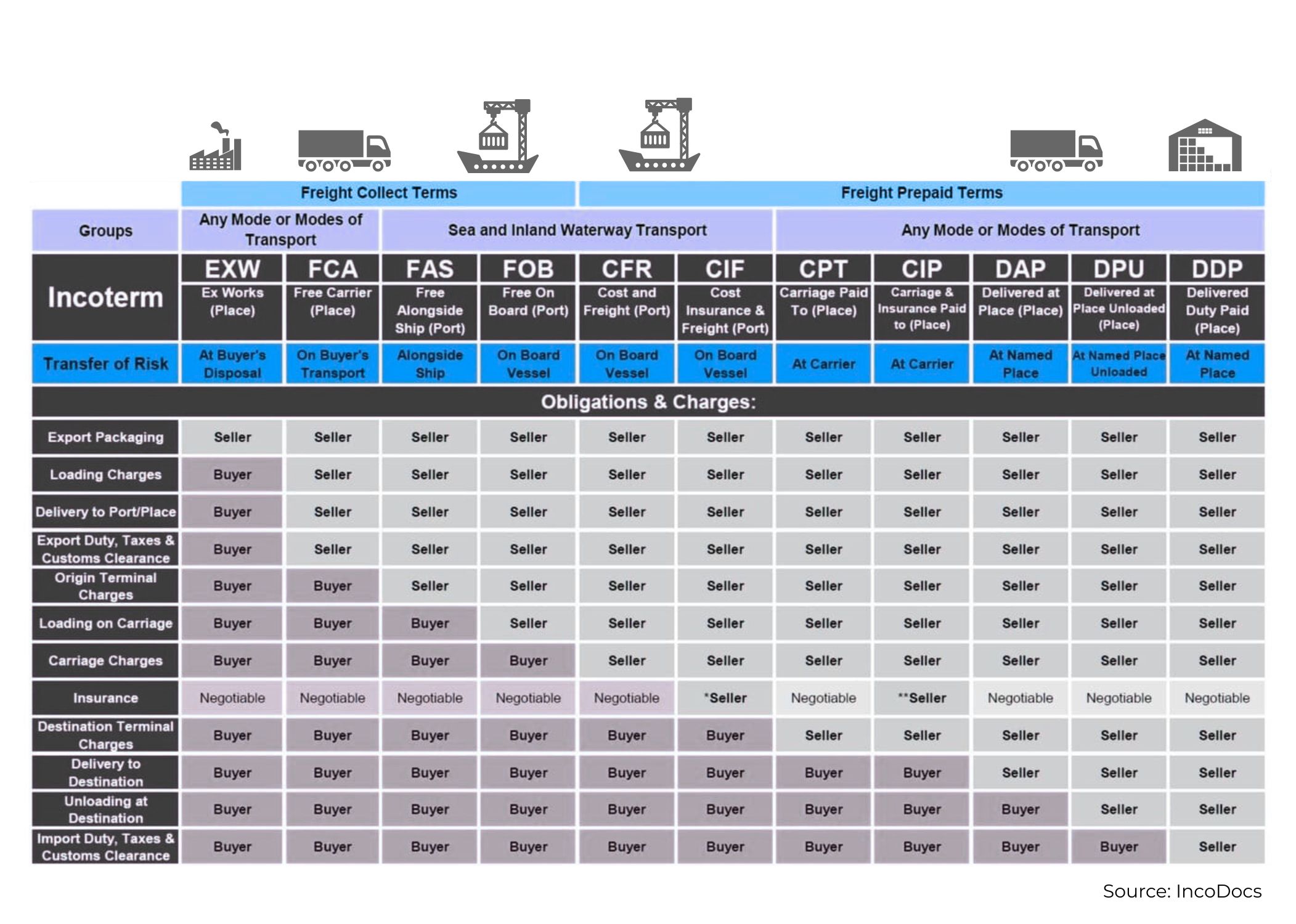Understanding Incoterms: A Guide for Aluminium Buyers and Sellers
Admin
2025-08-29
Have you ever worried about who pays the freight, who clears customs, or when the risk shifts in an aluminium deal? Maybe you’ve faced delays, surprise costs, or disputes over delivery.
If yes, you’re not alone.
The aluminium industry moves fast. From ingots and billets to scrap and finished goods, shipments cross borders daily. But without clear terms, even simple deals can turn stressful.
That’s where Incoterms come in. They cut through the confusion and give both sides clarity.
So, What Are Incoterms?
Incoterms (short for International Commercial Terms) are global trade rules set by the International Chamber of Commerce (ICC). They define who does what, who pays for what, and where risk transfers between the buyer and seller.
The latest version is Incoterms 2020. These rules cover three big questions:
- Who arranges and pays for shipping, freight and insurance?
- Who takes care of customs clearance?
- At what point does responsibility for the goods shift?
Think of Incoterms as a playbook. Both buyer and seller know their role. That means fewer disputes, fewer surprises, and smoother deals.
Why Are Incoterms Important in Aluminium Trading?
Here’s why Incoterms are vital for aluminium traders:
Cost control: You know exactly who pays what, avoiding hidden charges.
Risk management: You know when responsibility shifts, reducing disputes over damage or loss.
Legal clarity: Clear rules mean fewer arguments and fewer costly legal battles.
Common Incoterms
Here is the full list of Incoterms, along with a breakdown of who pays for what and when the risk transfers:

Most Common Incoterms in the Metal Industry
While the full list is used worldwide, aluminium and metal traders usually rely on three:
- FOB: Popular for bulk cargo like ingots. The seller’s duty ends once the goods are loaded on the ship.
- CIF: Favoured when buyers prefer the seller to handle freight and insurance up to the destination port.
- EXW: Used by sellers who want minimum responsibility. The buyer takes over once the goods are collected.
Pro tip: FOB and CIF dominate in B2B aluminium trade because they balance responsibility and cost effectively.
Which Incoterm Should You Use?
There’s no one-size-fits-all. It depends on:
- Location: Where are you and your buyer or seller based?
- Shipping responsibilities: Do you want control of transport and insurance, or leave it to the other party?
- Risk appetite: Do you want to minimise your responsibility, or give your buyer a smoother deal?
For instance, let’s say you’re a seller based in India and selling aluminium scrap to a buyer in the UK. You might choose FOB to avoid handling shipping costs but still ensure that you take responsibility for the goods until they are loaded on the vessel.
Tips for Aluminium Buyers and Sellers:
- Always write the Incoterm in your contract.
- Include the named port/place.
- Check local customs rules – they can add surprise costs.
- Keep track of ICC updates; terms change with each revision.
Pro Tip: For B2B trade in aluminium, FOB and CIF are the most commonly used Incoterms.
Final Thoughts
Incoterms are the backbone of smooth, safe, and profitable aluminium trading. From scrap to finished products, the right Incoterm saves time, reduces disputes and protects your bottom line.
Explore our marketplace for verified aluminium leads, competitive offers and trusted global partners.
Categories
Raw Materials
Scrap
Consumables
Primary Aluminium
Secondary Aluminium
Equipment
Technology
Downstream Products
Finished Products
Utilities
Services
Others
Recent Blogs
Subscribe to newsletter
Connect with us











